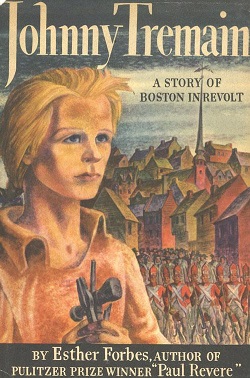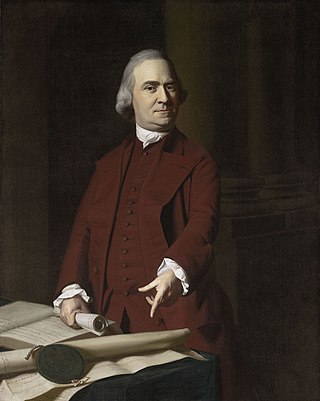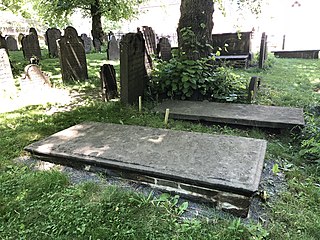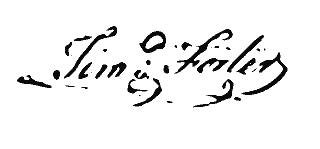
The American Revolution was a rebellion and political movement in the Thirteen Colonies which peaked when colonists initiated an ultimately successful war for independence against the Kingdom of Great Britain. Leaders of the American Revolution were colonial separatist leaders who originally sought more autonomy as British subjects, but later assembled to support the Revolutionary War, which ended British colonial rule over the colonies, establishing their independence as the United States of America in July 1776.

The Province of Massachusetts Bay was a colony in New England which became one of the thirteen original states of the United States. It was chartered on October 7, 1691, by William III and Mary II, the joint monarchs of the kingdoms of England, Scotland, and Ireland, and was based in the merging of several earlier British colonies in New England. The charter took effect on May 14, 1692, and included the Massachusetts Bay Colony, the Plymouth Colony, the Province of Maine, Martha's Vineyard, Nantucket, Nova Scotia, and New Brunswick; the Commonwealth of Massachusetts is the direct successor. Maine has been a separate state since 1820, and Nova Scotia and New Brunswick are now Canadian provinces, having been part of the colony only until 1697.

The Sons of Liberty was a loosely organized, clandestine, sometimes violent, political organization active in the Thirteen American Colonies founded to advance the rights of the colonists and to fight taxation by the British government. It played a major role in most colonies in battling the Stamp Act in 1765 and throughout the entire period of the American Revolution. Historian David C. Rapoport called the activities of the Sons of Liberty "mob terror."

Joseph Warren, a Founding Father of the United States, was an American physician who was one of the most important figures in the Patriot movement in Boston during the early days of the American Revolution, eventually serving as President of the revolutionary Massachusetts Provincial Congress. Warren enlisted Paul Revere and William Dawes on April 18, 1775, to leave Boston and spread the alarm that the British garrison in Boston was setting out to raid the town of Concord and arrest rebel leaders John Hancock and Samuel Adams. Warren participated in the Battles of Lexington and Concord the following day, the opening engagements of the American Revolutionary War.

The Townshend Acts or Townshend Duties were a series of British acts of Parliament passed during 1767 and 1768 introducing a series of taxes and regulations to enable administration of the British colonies in America. They are named after the Chancellor of the Exchequer who proposed the programme. Historians vary slightly as to which acts they include under the heading "Townshend Acts", but five are often listed:

Johnny Tremain is a work of historical fiction written in 1943 by Esther Forbes that is set in Boston prior to and during the outbreak of the American Revolution. Intended for teen-aged readers, the novel's themes include apprenticeship, courtship, sacrifice, human rights, and the growing tension between Patriots and Loyalists as conflict nears. Events depicted in the novel include the Boston Tea Party, the British blockade of the Port of Boston, the midnight ride of Paul Revere, and the Battles of Lexington and Concord.
The Daughters of Liberty was the formal female association that was formed in 1765 to protest the Stamp Act, and later the Townshend Acts, and was a general term for women who identified themselves as fighting for liberty during the American Revolution.

Joseph Palmer was an English-American general during the American Revolutionary War, beginning with the Siege of Boston and the Battle of Lexington. A Cambridge Committee of Safety member, he issued the Lexington Alarm dispatch for Israel Bissell to ride to warn that the war with Britain had begun. Palmer went on intelligence-gathering missions in Vermont and Rhode Island. George Washington issued letters of commendation to Palmer for his service.

The Boston Tea Party was an American political and mercantile protest on December 16, 1773, by the Sons of Liberty in Boston in colonial Massachusetts. The target was the Tea Act of May 10, 1773, which allowed the East India Company to sell tea from China in American colonies without paying taxes apart from those imposed by the Townshend Acts. The Sons of Liberty strongly opposed the taxes in the Townshend Act as a violation of their rights. In response, the Sons of Liberty, some disguised as Native Americans, destroyed an entire shipment of tea sent by the East India Company.

Samuel Adams was an American statesman, political philosopher, and a Founding Father of the United States. He was a politician in colonial Massachusetts, a leader of the movement that became the American Revolution, a signer of the Declaration of Independence and other founding documents, and one of the architects of the principles of American republicanism that shaped the political culture of the United States. He was a second cousin to his fellow Founding Father, President John Adams.

The Philadelphia Tea Party was an incident in late December 1773, shortly after the more famous Boston Tea Party, in which a British tea ship was intercepted by American colonists and forced to return its cargo to Great Britain.

Thomas Hancock was an American merchant and politician best known for being the uncle of Founding Father and statesman John Hancock. The son of an Anglican preacher, Thomas Hancock rose from obscurity to become one of the wealthiest businessmen in colonial Massachusetts, accumulating a 70,000 pound fortune over the course of his lifetime and becoming the proprietor of his own mercantile firm.

James Swan was an early American patriot and financier based in Boston in the 18th and 19th centuries. He was a member of the Sons of Liberty and participated in the Boston Tea Party. Swan was twice wounded at the Battle of Bunker Hill, he next became secretary of the Massachusetts Board of War and the legislature. During the time he held that office, he drew heavily on his private funds to aid the Continental Army, which was then in dire need of funds to arm and equip the soldiers who were arriving in Boston from all parts of New England. In 1795, Swan, acting as agent for France, helped refinance the United States’ debt to France, which amounted to 2,024,900 dollars. The US government gave him, as agent for France, newly issued US Government interest-bearing shares equal in value to the amount due on the French debt. Swan then arranged the sale of the shares to investors and the payment of the proceeds to France. In effect, the US replaced its debt to France with the US’s obligations under the new shares owned by private investors. The United States no longer owed money to foreign governments, although it continued to owe money to private investors both in the United States and in Europe. This allowed the young United States to place itself on a sound financial footing. On principles of loyalty, he spent 22 years—more than a quarter of his life—in the Paris Sainte-Pélagie Prison.

The Edenton Tea Party was a political protest in Edenton, North Carolina, in response to the Tea Act, passed by the British Parliament in 1773.

Penelope (Padgett) Hodgson Craven Barker, commonly known as Penelope Barker, was an activist who, in the lead-up to the American Revolution, organized a boycott of British goods in 1774 orchestrated by a group of women known as the Edenton Tea Party. It was the "first recorded women's political demonstration in America".

Benjamin Kent (1708–1788) was a Massachusetts Attorney General (1776–1777) and then acting Attorney General during much of Robert Treat Paine's tenure (1777–1785). He was appointed seven successive terms. Prior to the American Revolution, Kent was notable for his representation of slaves suing their masters for their freedom, which contributed to the demise of slavery in Massachusetts. He was a member of the North End Caucus and prominent member of the Sons of Liberty, which formed to protest the passage of the Stamp Act of 1765. The efforts of the Sons of Liberty created the foundation for the Boston Tea Party. Kent called for independence early in the American Revolution.

The Loyal Nine were nine American patriots from Boston who met in secret to plan protests against the Stamp Act of 1765. Mostly middle-class businessmen, the Loyal Nine enlisted Ebenezer Mackintosh to rally large crowds of commoners to their cause and provided the protesters with food, drink, and supplies. A precursor to the Sons of Liberty, the group is credited with establishing the Liberty Tree as a central gathering place for Boston patriots.
The Boston Non-importation agreement was an 18th century boycott that restricted importation of goods to the city of Boston. This agreement was signed on August 1, 1768 by more than 60 merchants and traders. After two weeks, there were only 16 traders who did not join the effort. In the upcoming months and years, this non-importation initiative was adopted by other cities: New York joined the same year, Philadelphia followed a year later. Boston stayed the leader in forming an opposition to the mother country and its taxing policy. The boycott lasted until the 1770 when the British Parliament repealed the acts against which the Boston Non-importation agreement was meant.

Timothy Foster and his family were the first colonial settlers of Winthrop, Massachusetts. He was a captain in the Massachusetts militia during the American Revolutionary War.
The Liberty Affair was an incident that culminated to a riot in 1768, leading to the Boston Massacre on March 5, 1770. It involved the seizure of the Liberty, a sloop owned by local smuggler and merchant John Hancock, by British authorities. This incident, which showed the difficulties in enforcing British revenue laws and growing colonial resentment against British rule, formed part of the series of events that led to the American Revolution.















